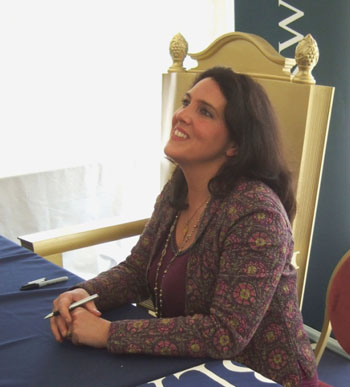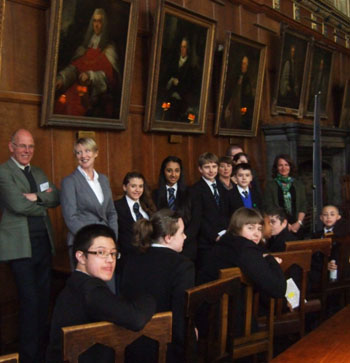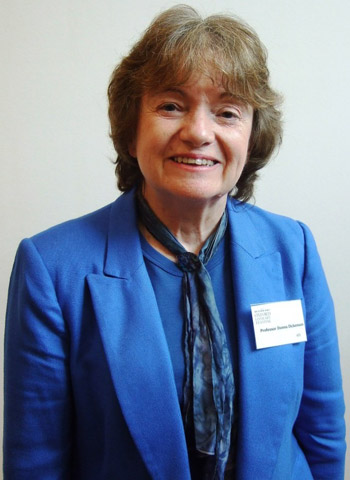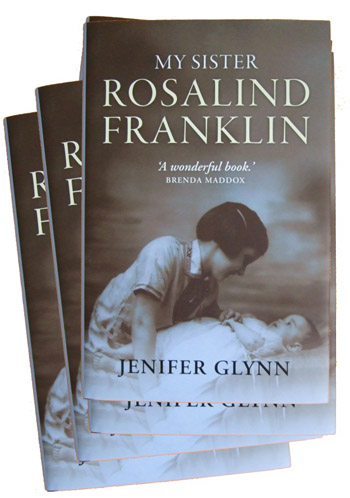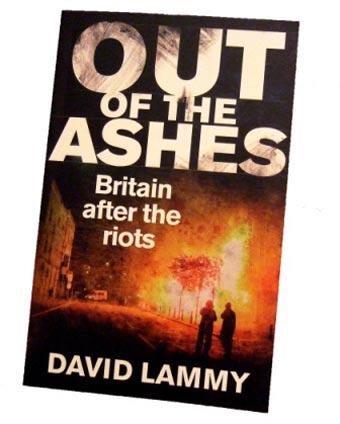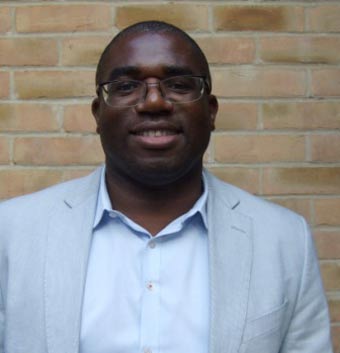This Isn’t the Sort of Thing That Happens to Someone Like You | Corpus Christi College, Sunday 1 April 2012
Jon McGregor visited Corpus Christi College to read from his collection of short stories, This Isn’t the Sort of Thing That Happens to Someone Like You, but he looked like – and introduced himself as - a travelling salesman. Writers are typically sheepish about presenting their writing as a commodity, but Jon makes no bones about the fact that his public performances are a way to peddle his wares.
Wearing a mac and opening a battered suitcase to reveal priced-up books, Jon explained to his bemused audience that he must sell his books in order to buy the time to write the next one. Plus, he added wryly, he has two children to feed.
All the short stories in Jon’s collection are linked by a common geographical thread – all started life in the flat, bleak landscape of the Lincolnshire Fens. (If you visit Jon’s website www.jonmcgregor.com, you’ll find a map where you can click on each story for extra background details).
The stories are billed as centring on the sort of events that readers would not imagine happening to them, but sometimes do. Indeed, the promo literature says that Jon’s book (which I have to admit I haven’t read) contains stories about a boy setting fire to a barn and a father who is arrested when he tries to watch his daughter’s nativity play.
Oddly though, barring the story about a woman who has a sugar beet crash through her windscreen, the stories that Jon chose to read at the Literary Festival were about fairly ordinary incidents in the lives of regular people; a car accident, a schoolboy’s discovery of his first pube, and a woman observing the changing colours of autumn.
In terms of what actually happens, Jon’s tales were less remarkable than I thought they would be. Nevertheless, the stories were sensitive, captivating and beautifully read. My favourite was ‘Looking up Vagina’ – a charming and poignant story about schoolboys’ fondness for looking up rude words in the dictionary.
As well as a common geographical thread, the stories shared a background hum of apocalypse. The tales were all charming and chatty, but each was underwritten by a deadly seriousness and a sense of pending catastrophe. This looming threat came to a head with Jon’s last reading, from the eerie narrative, ‘I remember there was a hill.’
The incidents that Jon selected for this reading were not overtly extraordinary. What is remarkable, however, is the way in which this remarkable writer has teased such absorbing stories out of the lacklustre landscape of the Lincolnshire fens, and woven a shiver of dread through the everyday.




